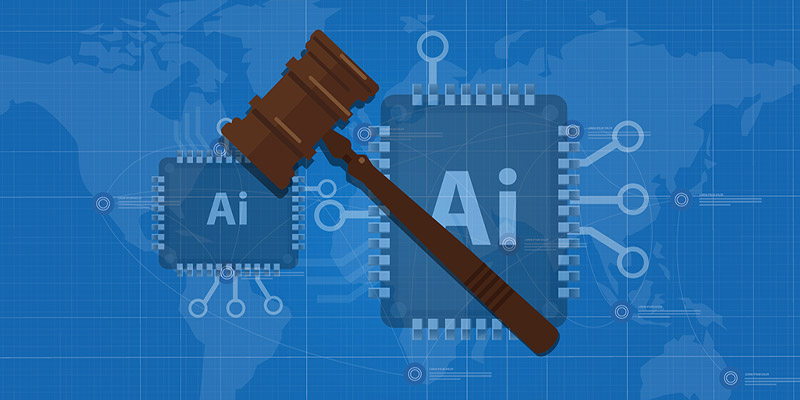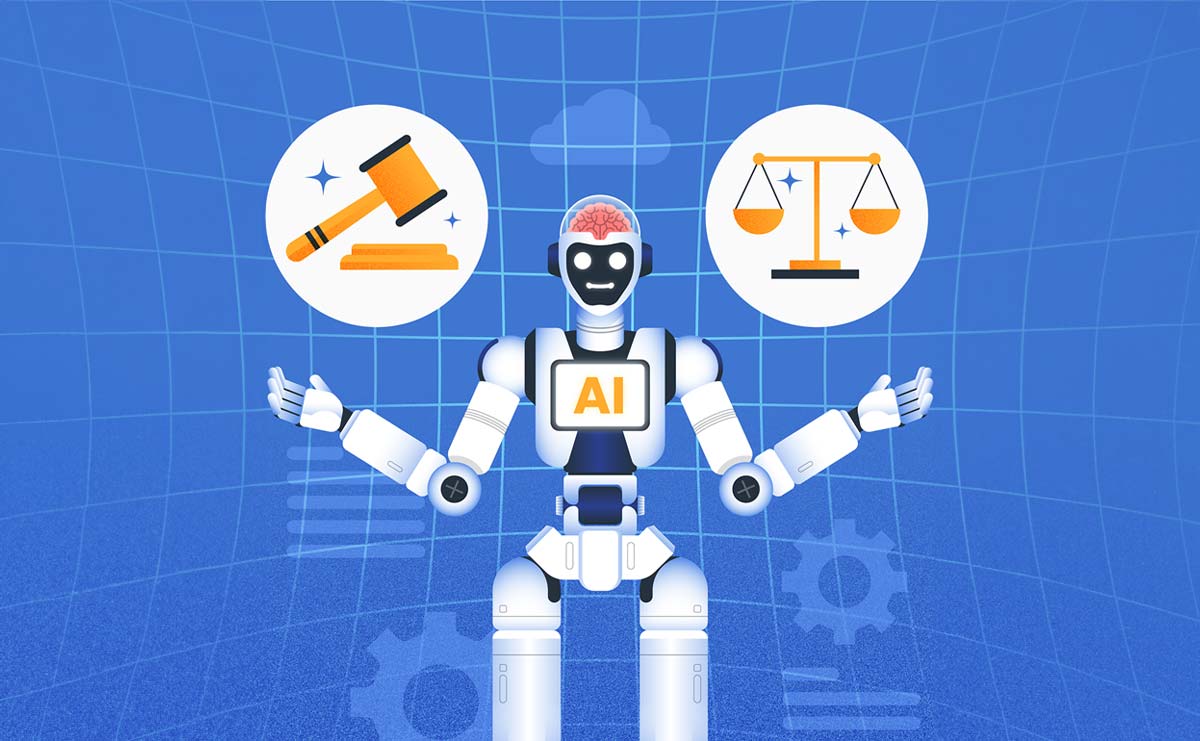Contents
Artificial Lawyers: The Future of Legal Practice or Just a Myth?
The legal industry is experiencing a profound transformation driven by the rapid advancement of technology. Among the most intriguing developments is the rise of artificial lawyers—AI-powered systems capable of performing tasks traditionally handled by human lawyers. From automating document review and legal research to predicting case outcomes and managing contracts, these artificial entities promise to revolutionize legal practice. However, their emergence also raises critical questions about the future of the legal profession. Is an artificial lawyer a glimpse into the inevitable future of legal practice, offering unparalleled efficiency and accessibility? Or are they merely a myth, overhyped and unable to fully replace the nuanced judgment and expertise of human lawyers? This exploration delves into the potential and limitations of an artificial lawyer, examining whether they are poised to become a cornerstone of modern legal practice or remain a speculative concept.
How Technology is Revolutionizing the Legal Industry?
Technology is transforming the legal industry, making it more efficient, accessible, and effective. Here are some of the key ways technology is revolutionizing the legal sector:
Automation of Routine Tasks
AI-powered tools can quickly review and analyze large volumes of legal documents, identifying relevant information and flagging inconsistencies. This speeds up the process and reduces the risk of human error. Advanced algorithms can sift through vast databases of legal texts, case law, and statutes to provide lawyers with relevant information and precedents, significantly cutting down research time.
Enhanced Client Interaction
AI-driven chatbots can handle initial client inquiries, provide legal information, and even assist with basic legal documentation. This improves client engagement and allows lawyers to focus on more complex tasks. Secure online portals enable clients to access case updates, documents, and communicate with their legal team at any time, enhancing transparency and client satisfaction.
Data-Driven Decision Making
By analyzing past case outcomes, AI can help lawyers predict the likely outcome of a case, inform strategy, and identify potential risks. This data-driven approach leads to more informed decision-making and better case management. Legal tech tools can efficiently manage and organize vast amounts of data, ensuring that all relevant information is easily accessible and securely stored.
E-Discovery
E-discovery tools use machine learning to search through electronic data to find relevant information for legal cases. This is much faster and more accurate than traditional discovery methods. By automating the discovery process, firms can significantly reduce the time and costs associated with manual document review.
Blockchain and Smart Contracts
These self-executing contracts with the terms directly written into code can automatically enforce and execute the terms of an agreement when predefined conditions are met. This reduces the need for intermediaries and speeds up transaction processes. Blockchain technology provides a secure and transparent way to record transactions and legal agreements, reducing the risk of fraud and enhancing trust in legal processes.
Remote and Virtual Legal Services
Technology enables the operation of virtual law firms, allowing lawyers to work remotely and provide services to clients regardless of geographic location. This flexibility is especially beneficial in times of crisis, such as during the COVID-19 pandemic. Platforms for online dispute resolution (ODR) allow parties to resolve disputes through digital mediation or arbitration, providing a quicker and often more cost-effective alternative to traditional court proceedings.
Legal Practice Management Software
Practice management software integrates various aspects of a law firm’s operations, including case management, billing, time tracking, and document management, into a single platform. This streamlines workflows and improves overall efficiency. Legal CRM systems like RunSensible help firms manage client interactions, track leads, and enhance client retention through better relationship management.
Legal Education and Training
Technology has enabled the creation of online platforms for legal education and training, making it easier for legal professionals to stay updated with the latest developments and continuing education requirements. Virtual Reality (VR) simulations provide immersive training experiences for law students and professionals, helping them develop practical skills in a controlled, risk-free environment.
Enhanced Access to Legal Services
Startups are developing innovative solutions to make legal services more affordable and accessible, such as platforms that offer legal advice, document generation, and consultation services at a lower cost. Technology is enhancing the delivery of pro bono and legal aid services, making legal assistance more accessible to underserved populations.
Technology is revolutionizing the legal industry by automating routine tasks, enhancing client interaction, enabling data-driven decision-making, streamlining discovery processes, introducing blockchain and smart contracts, facilitating remote legal services, improving legal practice management and education, and enhancing access to legal services. These advancements are making legal services more efficient, accessible, and effective, ultimately benefiting both legal professionals and their clients.
The Emergence of Artificial Lawyers in the Legal Industry
The legal industry is witnessing a significant transformation with the advent of artificial intelligence (AI) and the rise of artificial lawyers. These AI-powered tools and systems are reshaping how legal services are delivered, making the industry more efficient, accessible, and innovative. The emergence of an artificial lawyer in the legal industry marks a revolutionary shift in how legal services are delivered. By automating routine tasks, enhancing legal analytics, improving client services, and reducing costs, AI is making the legal industry more efficient and accessible. However, it also brings ethical and regulatory challenges that need to be addressed to ensure fair and responsible use of AI in legal practice.
Pros and Cons of the Emergence of Artificial Lawyers in the Legal Industry
Pros
- Increased Efficiency
An artificial lawyer can handle repetitive tasks such as document review, legal research, and contract analysis more quickly and accurately than humans. Additionally, they can operate round the clock without breaks, providing continuous support and reducing turnaround times.
- Cost Reduction
Firms can save on labor costs by employing robot lawyers for tasks that would otherwise require human paralegals or junior associates. Reduced costs can make legal services more accessible to individuals and small businesses who might not afford traditional legal assistance.
- Consistency and Accuracy
Artificial lawyers can ensure consistent and error-free processing of legal documents, reducing the risk of mistakes that could arise from human fatigue or oversight. They can analyze large volumes of data to provide insights and predictions that might be missed by human lawyers.
- Enhanced Client Experience
Clients can receive quicker responses to their queries and faster processing of their cases. AI tailors services to individual client needs based on their specific circumstances and preferences.
Cons
- Job Displacement
The automation of routine tasks may lead to fewer job opportunities for paralegals and junior lawyers. Legal professionals might need to acquire new skills to work alongside AI technologies, which could be a barrier for some.
- Ethical and Legal Concerns
Determining liability for mistakes made by robot lawyers can be complex, raising questions about accountability and legal responsibility. AI systems can inherit biases from the data they are trained on, leading to unfair or discriminatory outcomes in legal decision-making.
- Security and Privacy Risks
The use of AI in handling sensitive legal information increases the risk of data breaches and cyberattacks. Ensuring the confidentiality of client information managed by artificial lawyers is critical and can be challenging.
- Limited Scope
Artificial lawyers may struggle with complex, nuanced cases that require human judgment, empathy, and ethical considerations. The effectiveness of AI is heavily dependent on the quality and accuracy of the data it is trained on, which can sometimes be flawed or incomplete.
While the emergence of artificial lawyers in the legal industry offers significant advantages in terms of efficiency, cost reduction, and enhanced client experience, it also presents challenges related to job displacement, ethical concerns, security risks, and limitations in handling complex legal matters. Balancing these pros and cons will be crucial as the legal industry continues to integrate AI technologies.
The Future of Legal Profession
The legal profession is on the brink of significant transformation, driven by technological advancements, evolving client expectations, and shifting regulatory landscapes. Here are key trends and predictions shaping the future of legal practice:
Technological Integration
- Artificial Intelligence (AI): AI will play a pivotal role in automating routine tasks such as document review, legal research, and contract analysis. Advanced AI systems will assist in predictive analytics, helping lawyers anticipate case outcomes and strategize accordingly.
- Blockchain Technology: Blockchain will enhance transparency and security in legal transactions, particularly in areas like property law, intellectual property, and smart contracts.
- Cloud Computing: Cloud-based platforms will enable seamless collaboration and remote work, making legal services more flexible and accessible.
Client-Centric Services
- Personalization: Legal services will become more tailored to individual client needs, with AI and data analytics providing insights into client preferences and case histories.
- 24/7 Accessibility: Clients will expect around-the-clock access to legal advice and services, facilitated by chatbots and automated response systems.
New Legal Roles and Skills
- Tech-Savvy Lawyers: The demand for lawyers proficient in technology and data analytics will increase. Legal professionals will need to acquire skills in coding, cybersecurity, and AI to stay competitive.
- Interdisciplinary Expertise: Lawyers will increasingly collaborate with professionals from other fields, such as data scientists, engineers, and business strategists, to offer comprehensive solutions.
Alternative Legal Service Providers (ALSPs)
- Rise of ALSPs: Non-traditional legal service providers, including legal tech startups and consulting firms, will continue to disrupt the market by offering cost-effective and innovative solutions.
- Unbundled Services: Clients will have the option to select specific legal services rather than comprehensive packages, leading to more flexible and affordable pricing models.
Regulatory and Ethical Challenges
- Regulatory Adaptation: Legal regulations will need to evolve to address new challenges posed by technology, such as data privacy, cybersecurity, and AI ethics.
- Ethical Considerations: The use of AI and automation in legal practice will raise ethical questions about bias, accountability, and the role of human judgment in legal decision-making.
Globalization of Legal Services
- Cross-Border Collaboration: Advances in communication technology will facilitate cross-border legal services, enabling firms to serve international clients more effectively.
- Standardization: There will be a push towards standardizing legal processes and documentation across jurisdictions to streamline international legal practice.
Emphasis on Access to Justice
- Pro Bono and Legal Aid: Technology will enhance the delivery of pro bono and legal aid services, making legal assistance more accessible to underserved populations.
- Simplified Legal Processes: Efforts to simplify and demystify legal processes through online platforms and user-friendly interfaces will improve access to justice for all.

Summary
The legal industry is undergoing a profound transformation driven by advancements in technology, particularly with the rise of artificial lawyers—AI-powered systems that perform tasks traditionally handled by human lawyers. These systems automate document review, legal research, and contract management, promising to revolutionize legal practice with unparalleled efficiency and accessibility. However, the emergence of artificial lawyers also raises critical questions about the future of the legal profession. While they offer significant advantages such as increased efficiency, cost reduction, and enhanced client experience, they also pose challenges related to job displacement, ethical concerns, security risks, and limitations in handling complex cases. This article explores the potential and limitations of artificial lawyers, examining whether they are poised to become a cornerstone of modern legal practice or remain a speculative concept, and considers the broader impact of technology on the legal industry.
Frequently Asked Questions
Is AI going wrong in the legal profession?
While AI holds significant promise for the legal profession, it also presents challenges that must be addressed to prevent potential pitfalls. AI systems can inherit biases from training data, leading to discriminatory outcomes, and determining accountability for AI errors can be complex. Over-reliance on AI may undermine human expertise, while data privacy and security concerns arise from handling sensitive information. Ethical considerations, such as the diminished role of human judgment and job displacement, pose further risks. Additionally, the accuracy of AI outputs depends on the quality of training data, and integrating AI within a heavily regulated industry introduces compliance challenges. Ensuring transparency, accountability, and a balance between human and AI capabilities is essential for the responsible use of AI in legal practice.
Should law firms adopt AI?
Law firms should consider adopting AI due to its potential to enhance efficiency, reduce costs, and improve client services by automating routine tasks like document review, legal research, and contract analysis, allowing lawyers to focus on complex work. AI-powered tools offer valuable predictive analytics, helping lawyers make informed decisions and anticipate case outcomes, thus providing faster and more accurate services that improve client satisfaction. However, adoption must be cautious, addressing risks such as biases in AI systems, data privacy and security concerns, and ethical considerations. Establishing robust guidelines, ensuring transparency and accountability, and maintaining a balance between human expertise and AI capabilities will enable law firms to harness AI’s benefits while mitigating associated risks, ultimately enhancing operations and service delivery.
Disclaimer: The content provided on this blog is for informational purposes only and does not constitute legal, financial, or professional advice.







